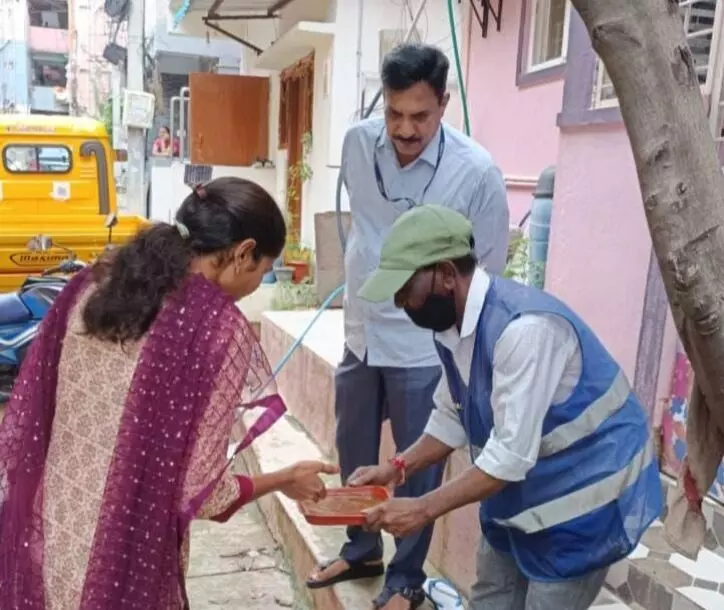GHMC launches tech-driven mosquito control to fight dengue, malaria, chikungunya
Awareness drives are being conducted in schools and colleges every Tuesday, Friday and Saturday to educate students on prevention
By Newsmeter Network
GHMC launches tech-driven mosquito control to fight dengue, malaria, chikungunya
Hyderabad: The Greater Hyderabad Municipal Corporation (GHMC) has intensified its mosquito-control operations, combining field measures with technology to prevent the spread of dengue, malaria and chikungunya.
Mosquito breeding spots identified in 4,846 colonies
As part of the Commissioner’s directions, GHMC’s Entomology Department is carrying out anti-larva and anti-adult mosquito control activities in all zones and circles.
In 4,846 identified colonies, mosquito breeding spots such as stagnant water in tanks, ponds, and open drains are being treated with gambusia fish and oil balls.
One Entomology Field Assistant has been deployed in every ward to oversee anti-larva operations, fogging, and awareness programs. Special attention is being paid to low-lying areas, construction sites, and cellars where indoor pyrethrum spraying and larval surveys are underway.
Drones deployed in inaccessible areas
For locations that are difficult or unsafe for manual spraying, GHMC is deploying drones.
These cover not only overhead water tanks but also remote and uninhabited zones, helping to prevent mosquito growth before it spreads to residential areas.
Public participation and weekly ‘dry day’
Awareness drives are being conducted in schools and colleges every Tuesday, Friday and Saturday to educate students on prevention. Fridays are observed as “Friday Dry Day” in residential areas, encouraging residents to clear stagnant water around their homes.
GHMC is also advising households with pot trays, plant saucers, or bowls used for feeding pets and street animals to wash and dry them at least once a week. This prevents mosquito larvae from breeding in unnoticed corners.
Complaint-based fogging
Residents can request fogging through the “My GHMC” mobile app. Once a request is received, the entomology team schedules fogging in the reported area.
Monitoring with geo-tagging
All anti-larva operations are being tracked through geo-tagged photographs, allowing real-time supervision and accountability among field staff.
Health concerns and hotspot areas
GHMC officials warn that the city’s high mosquito density increases the risk of seasonal disease outbreaks. While fogging helps reduce adult mosquitoes, officials emphasise that eliminating breeding sites is the most effective prevention.
Certain areas continue to generate the highest number of mosquito-related complaints, including Malkajgiri, Alwal, Chandanagar, Gajularamaram, and parts of Serilingampally. Lakeside colonies and neighbourhoods along the Musi River have also been identified as persistent hotspots due to stagnant water and waste accumulation.
Officials are urging residents to ensure their homes and surroundings remain free from stagnant water.